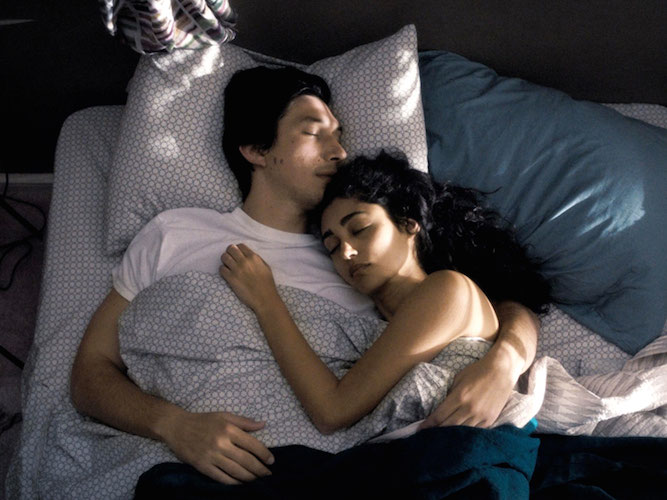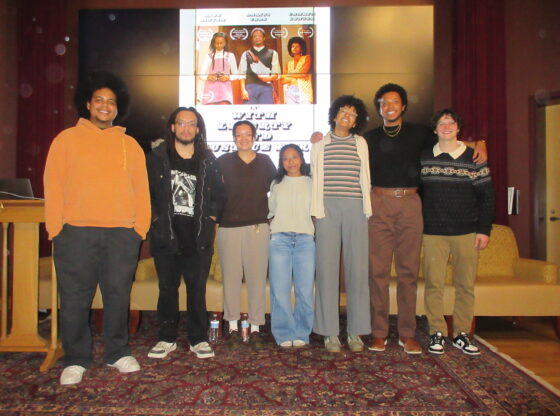In Jim Jarmusch’s (“Dead Man”) latest film, “Paterson,” the plot moves with the quiet rhythm of one man’s daily rituals. Paterson, played by Adam Driver (“Star Wars: The Force Awakens”), is a city bus driver, coincidentally, in Paterson, New Jersey. He lives the seemingly monotonous life of a working-class citizen. Each morning he wakes up, kisses his wife, Laura (played by the beautiful Golshifteh Farahani, “Body of Lies”), silently listens to the conversations of strangers as he drives them through the city and then writes a few lines of poetry during his lunch break. The scenes are repetitive and lacking in action, and yet the unassuming poet will astonish you continuously. Through his eyes, this insignificant world is magnified and revealed, and the beauty is woven within each moment like a transparent web.
Jim Jarmusch has alluded to his love of poetry in his past films, such as the role of Christopher Marlowe in “Only Lovers Left Alive” and William Blake in “Dead Man.” In fact, before film-writing, Jarmusch studied to become a poet at Columbia University. A few poems in the movie are written by Jarmusch himself, but the rest were penned by American poet Ron Padgett. “Paterson” has been deemed a poem in itself, written as a tribute to Jarmusch’s first love.
Words are written across the screen as though inscribed onto water, rippling and disappearing as the bus driver scratches them into his notebook. We listen as he rolls the words around in his head, testing their cadence. Throughout the film, the subject of his poetry is his adoration of his wife and the life they share.
Maintaining “Paterson’s” theme, his love poems focus on the small pieces of everyday life, such as a box of Ohio Blue Tip matches that sits on their kitchen counter. Laura makes for a striking muse with her exotic features, her habit of painting black circles and stripes onto their curtains and walls and her constant efforts to discover her “dream.” Their love story is one told with humble charm, often interrupted by the envious growling of the bulldog, Marvin.
The concept of this film was born from the director’s admiration of the poet William Carlos Williams and his epic poem “Paterson,” which is a tribute to the blue-collar men and women of the New Jersey city. Williams’ poetry plays a large role in the film. Paterson reads him on Saturday morning and recites his poem “This is Just to Say” to Laura in their kitchen.
In the end of the film, after Paterson’s creativity has received a discouraging blow, he stumbles upon a Japanese poet in a park. The man sits beside him on a bench and pulls a copy of “Paterson” from his bag. The two strangers begin talking about the writer and his ability to capture the innate poetry that pulses through the city’s streets.
Driver gives a resonating performance that stands among best of this year. “Paterson” is laced with conviction and humility, illuminating the commonly glazed-over life of the working-class man. The film places the viewer into the driver’s seat, where he hears the murmurings, the laughter and the sadness that fill the spaces within his own life, coming from men and women that can, at times, seem so unfamiliar.











